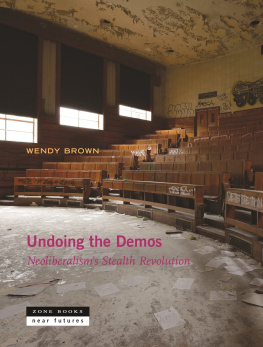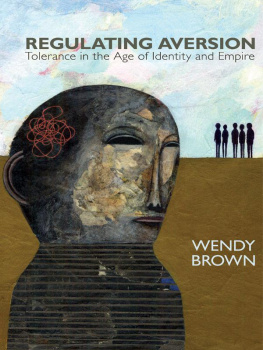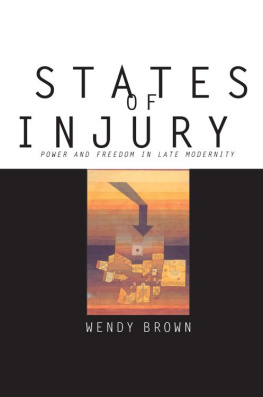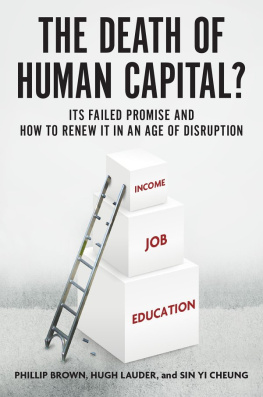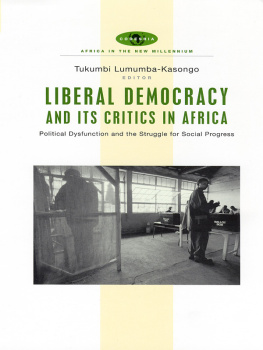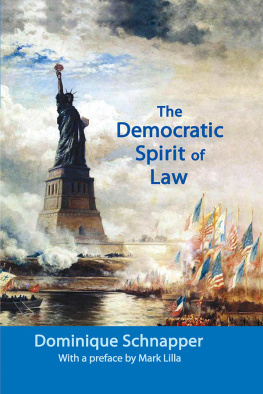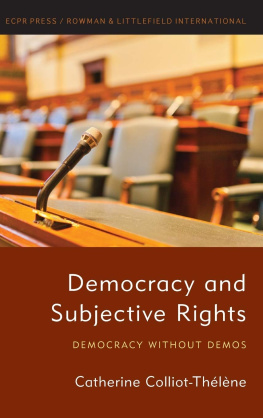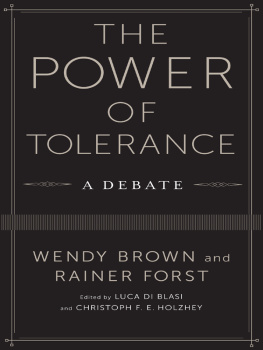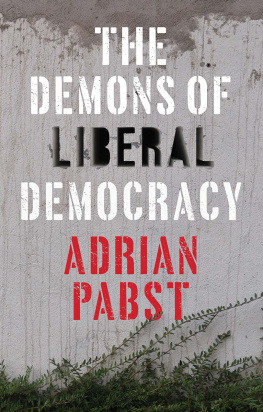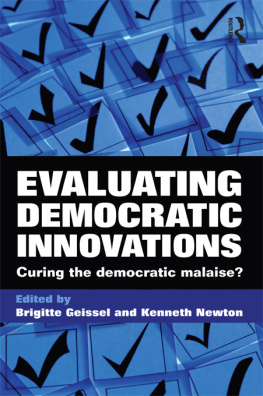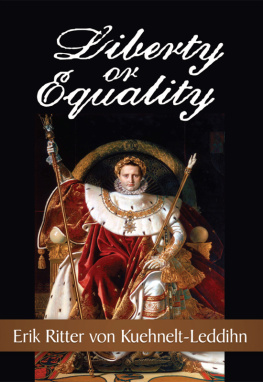Wendy Brown - Undoing the Demos: Neoliberalisms Stealth Revolution
Here you can read online Wendy Brown - Undoing the Demos: Neoliberalisms Stealth Revolution full text of the book (entire story) in english for free. Download pdf and epub, get meaning, cover and reviews about this ebook. year: 2015, publisher: MIT Press, genre: Politics. Description of the work, (preface) as well as reviews are available. Best literature library LitArk.com created for fans of good reading and offers a wide selection of genres:
Romance novel
Science fiction
Adventure
Detective
Science
History
Home and family
Prose
Art
Politics
Computer
Non-fiction
Religion
Business
Children
Humor
Choose a favorite category and find really read worthwhile books. Enjoy immersion in the world of imagination, feel the emotions of the characters or learn something new for yourself, make an fascinating discovery.
- Book:Undoing the Demos: Neoliberalisms Stealth Revolution
- Author:
- Publisher:MIT Press
- Genre:
- Year:2015
- Rating:3 / 5
- Favourites:Add to favourites
- Your mark:
Undoing the Demos: Neoliberalisms Stealth Revolution: summary, description and annotation
We offer to read an annotation, description, summary or preface (depends on what the author of the book "Undoing the Demos: Neoliberalisms Stealth Revolution" wrote himself). If you haven't found the necessary information about the book — write in the comments, we will try to find it.
Tracing neoliberalisms devastating erosions of democratic principles, practices, and cultures. Neoliberal rationalityubiquitous today in statecraft and the workplace, in jurisprudence, education, and cultureremakes everything and everyone in the image of homo oeconomicus. What happens when this rationality transposes the constituent elements of democracy into an economic register?
In Undoing the Demos, Wendy Brown explains how democracy itself is imperiled. The demos disintegrates into bits of human capital; concerns with justice bow to the mandates of growth rates, credit ratings, and investment climates; liberty submits to the imperative of human capital appreciation; equality dissolves into market competition; and popular sovereignty grows incoherent. Liberal democratic practices may not survive these transformations. Radical democratic dreams may not either.
In an original and compelling argument, Brown explains how and why neoliberal reason undoes the political form and political imaginary it falsely promises to secure and reinvigorate. Through meticulous analyses of neoliberalized law, political practices, governance, and education, she charts the new common sense. Undoing the Demos makes clear that for democracy to have a future, it must become an object of struggle and rethinking.
Neoliberal rationality ubiquitous today in statecraft and the workplace, in jurisprudence, education, and culture remakes everything and everyone in the image of homo oeconomicus. What happens when this rationality transposes the constituent elements of democracy into an economic register? In vivid detail, Wendy Brown explains how democracy itself is imperiled.
The demos disintegrates into bits of human capital; concerns with justice cede to the mandates of growth rates, credit ratings, and investment climates; liberty submits to the imperative of human capital appreciation; equality dissolves into market competition; and popular sovereignty grows incoherent. Liberal democratic practices may not survive these transformations. Radical democratic dreams may not either.
In an original and compelling theoretical argument, Brown explains how and why neoliberal reason undoes the political form and political imaginary it falsely promises to secure and reinvigorate. Through meticulous analyses of neoliberalized law, political practices, governance, and education, she charts the new common sense.
Undoing the Demos makes clear that, far from being the lodestar of the twenty-first century, a future for democracy depends upon it becoming an object of struggle and rethinking.
With this passionately incisive critique of neoliberal (ir)rationality, Wendy Brown delineates the political stakes of the present. Tracing its antipolitical and antidemocratic impulses, she challenges us to defend and extend the possibilities of a popular politics that makes the promises of democracy come true. John Clarke, Professor Emeritus of Social Policy, The Open University
This is a book for the age of resistance, for the occupiers of the squares, for the generation of Occupy Wall Street. The premier radical political philosopher of our time offers a devastating critique of the way neoliberalism has hollowed out democracy. After reading Brown, only bad faith can justify the toleration of neoliberalism. Costas Douzinas, Director of the Birkbeck Institute for the Humanities and author of Philosophy and Resistance in the Crisis
Wendy Brown vividly lays bare neoliberalisms perverse rationality, the economization of everything, documenting its corrosive consequences for public institutions, for solidaristic values, and for democracy itself. Essential but unsettling reading, Undoing the Demos is analytically acute and deeply disturbing. Jamie Peck, author of Constructions of Neoliberal Reason
A major contribution, presenting its arguments with power and clarity, this book helps us understand the world we have increasingly been forced to live in, and to begin the process of thinking about what might be done to revitalize our political imagination and practices. Raymond Geuss, author of Reality and Its Dreams
Wendy Brown is Class of 1936 First Chair of Political Science at the University of California, Berkeley, where she is also affiliated with the Department of Rhetoric and the Critical Theory Program and the author of Undoing the Demos: Neoliberalisms Stealth Revolution (Zone Books).
Wendy Brown: author's other books
Who wrote Undoing the Demos: Neoliberalisms Stealth Revolution? Find out the surname, the name of the author of the book and a list of all author's works by series.

